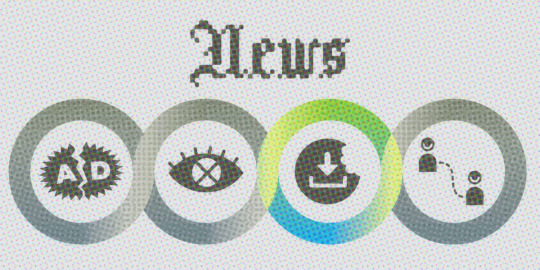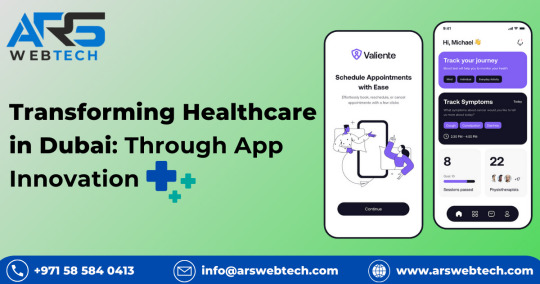#mobile market app
Text
Subprime gadgets

I'm on tour with my new, nationally bestselling novel The Bezzle! Catch me THIS SUNDAY in ANAHEIM at WONDERCON: YA Fantasy, Room 207, 10 a.m.; Signing, 11 a.m.; Teaching Writing, 2 p.m., Room 213CD.

The promise of feudal security: "Surrender control over your digital life so that we, the wise, giant corporation, can ensure that you aren't tricked into catastrophic blunders that expose you to harm":
https://locusmag.com/2021/01/cory-doctorow-neofeudalism-and-the-digital-manor/
The tech giant is a feudal warlord whose platform is a fortress; move into the fortress and the warlord will defend you against the bandits roaming the lawless land beyond its walls.
That's the promise, here's the failure: What happens when the warlord decides to attack you? If a tech giant decides to do something that harms you, the fortress becomes a prison and the thick walls keep you in.
Apple does this all the time: "click this box and we will use our control over our platform to stop Facebook from spying on you" (Ios as fortress). "No matter what box you click, we will spy on you and because we control which apps you can install, we can stop you from blocking our spying" (Ios as prison):
https://pluralistic.net/2022/11/14/luxury-surveillance/#liar-liar
But it's not just Apple – any corporation that arrogates to itself the right to override your own choices about your technology will eventually yield to temptation, using that veto to help itself at your expense:
https://pluralistic.net/2023/07/28/microincentives-and-enshittification/
Once the corporation puts the gun on the mantelpiece in Act One, they're begging their KPI-obsessed managers to take it down and shoot you in the head with it in anticipation of of their annual Act Three performance review:
https://pluralistic.net/2023/12/08/playstationed/#tyler-james-hill
One particularly pernicious form of control is "trusted computing" and its handmaiden, "remote attestation." Broadly, this is when a device is designed to gather information about how it is configured and to send verifiable testaments about that configuration to third parties, even if you want to lie to those people:
https://www.eff.org/deeplinks/2023/08/your-computer-should-say-what-you-tell-it-say-1
New HP printers are designed to continuously monitor how you use them – and data-mine the documents you print for marketing data. You have to hand over a credit-card in order to use them, and HP reserves the right to fine you if your printer is unreachable, which would frustrate their ability to spy on you and charge you rent:
https://arstechnica.com/gadgets/2024/02/hp-wants-you-to-pay-up-to-36-month-to-rent-a-printer-that-it-monitors/
Under normal circumstances, this technological attack would prompt a defense, like an aftermarket mod that prevents your printer's computer from monitoring you. This is "adversarial interoperability," a once-common technological move:
https://www.eff.org/deeplinks/2019/10/adversarial-interoperability
An adversarial interoperator seeking to protect HP printer users from HP could gin up fake telemetry to send to HP, so they wouldn't be able to tell that you'd seized the means of computation, triggering fines charged to your credit card.
Enter remote attestation: if HP can create a sealed "trusted platform module" or a (less reliable) "secure enclave" that gathers and cryptographically signs information about which software your printer is running, HP can detect when you have modified it. They can force your printer to rat you out – to spill your secrets to your enemy.
Remote attestation is already a reliable feature of mobile platforms, allowing agencies and corporations whose services you use to make sure that you're perfectly defenseless – not blocking ads or tracking, or doing anything else that shifts power from them to you – before they agree to communicate with your device.
What's more, these "trusted computing" systems aren't just technological impediments to your digital wellbeing – they also carry the force of law. Under Section 1201 of the Digital Millennium Copyright Act, these snitch-chips are "an effective means of access control" which means that anyone who helps you bypass them faces a $500,000 fine and a five-year prison sentence for a first offense.
Feudal security builds fortresses out of trusted computing and remote attestation and promises to use them to defend you from marauders. Remote attestation lets them determine whether your device has been compromised by someone seeking to harm you – it gives them a reliable testament about your device's configuration even if your device has been poisoned by bandits:
https://pluralistic.net/2020/12/05/trusting-trust/#thompsons-devil
The fact that you can't override your computer's remote attestations means that you can't be tricked into doing so. That's a part of your computer that belongs to the manufacturer, not you, and it only takes orders from its owner. So long as the benevolent dictator remains benevolent, this is a protective against your own lapses, follies and missteps. But if the corporate warlord turns bandit, this makes you powerless to stop them from devouring you whole.
With that out of the way, let's talk about debt.
Debt is a normal feature of any economy, but today's debt plays a different role from the normal debt that characterized life before wages stagnated and inequality skyrocketed. 40 years ago, neoliberalism – with its assaults on unions and regulations – kicked off a multigenerational process of taking wealth away from working people to make the rich richer.
Have you ever watched a genius pickpocket like Apollo Robbins work? When Robins lifts your wristwatch, he curls his fingers around your wrist, expertly adding pressure to simulate the effect of a watchband, even as he takes away your watch. Then, he gradually releases his grip, so slowly that you don't even notice:
https://www.reddit.com/r/nextfuckinglevel/comments/ppqjya/apollo_robbins_a_master_pickpocket_effortlessly/
For the wealthy to successfully impoverish the rest of us, they had to provide something that made us feel like we were still doing OK, even as they stole our wages, our savings, and our futures. So, even as they shipped our jobs overseas in search of weak environmental laws and weaker labor protection, they shared some of the savings with us, letting us buy more with less. But if your wages keep stagnating, it doesn't matter how cheap a big-screen TV gets, because you're tapped out.
So in tandem with cheap goods from overseas sweatshops, we got easy credit: access to debt. As wages fell, debt rose up to fill the gap. For a while, it's felt OK. Your wages might be falling off, the cost of health care and university might be skyrocketing, but everything was getting cheaper, it was so easy to borrow, and your principal asset – your family home – was going up in value, too.
This period was a "bezzle," John Kenneth Galbraith's name for "The magic interval when a confidence trickster knows he has the money he has appropriated but the victim does not yet understand that he has lost it." It's the moment after Apollo Robbins has your watch but before you notice it's gone. In that moment, both you and Robbins feel like you have a watch – the world's supply of watch-derived happiness actually goes up for a moment.
There's a natural limit to debt-fueled consumption: as Michael Hudson says, "debts that can't be paid, won't be paid." Once the debtor owes more than they can pay back – or even service – creditors become less willing to advance credit to them. Worse, they start to demand the right to liquidate the debtor's assets. That can trigger some pretty intense political instability, especially when the only substantial asset most debtors own is the roof over their heads:
https://pluralistic.net/2022/11/06/the-end-of-the-road-to-serfdom/
"Debts that can't be paid, won't be paid," but that doesn't stop creditors from trying to get blood from our stones. As more of us became bankrupt, the bankruptcy system was gutted, turned into a punitive measure designed to terrorize people into continuing to pay down their debts long past the point where they can reasonably do so:
https://pluralistic.net/2022/10/09/bankruptcy-protects-fake-people-brutalizes-real-ones/
Enter "subprime" – loans advanced to people who stand no meaningful chance of every paying them back. We all remember the subprime housing bubble, in which complex and deceptive mortgages were extended to borrowers on the promise that they could either flip or remortgage their house before the subprime mortgages detonated when their "teaser rates" expired and the price of staying in your home doubled or tripled.
Subprime housing loans were extended on the belief that people would meekly render themselves homeless once the music stopped, forfeiting all the money they'd plowed into their homes because the contract said they had to. For a brief minute there, it looked like there would be a rebellion against mass foreclosure, but then Obama and Timothy Geithner decreed that millions of Americans would have to lose their homes to "foam the runways" for the banks:
https://wallstreetonparade.com/2012/08/how-treasury-secretary-geithner-foamed-the-runways-with-childrens-shattered-lives/
That's one way to run a subprime shop: offer predatory loans to people who can't afford them and then confiscate their assets when they – inevitably – fail to pay their debts off.
But there's another form of subprime, familiar to loan sharks through the ages: lend money at punitive interest rates, such that the borrower can never repay the debt, and then terrorize the borrower into making payments for as long as possible. Do this right and the borrower will pay you several times the value of the loan, and still owe you a bundle. If the borrower ever earns anything, you'll have a claim on it. Think of Americans who borrowed $79,000 to go to university, paid back $190,000 and still owe $236,000:
https://pluralistic.net/2020/12/04/kawaski-trawick/#strike-debt
This kind of loan-sharking is profitable, but labor-intensive. It requires that the debtor make payments they fundamentally can't afford. The usurer needs to get their straw right down into the very bottom of the borrower's milkshake and suck up every drop. You need to convince the debtor to sell their wedding ring, then dip into their kid's college fund, then steal their father's coin collection, and, then break into cars to steal the stereos. It takes a lot of person-to-person work to keep your sucker sufficiently motivated to do all that.
This is where digital meets subprime. There's $1T worth of subprime car-loans in America. These are pure predation: the lender sells a beater to a mark, offering a low down-payment loan with a low initial interest rate. The borrower makes payments at that rate for a couple of months, but then the rate blows up to more than they can afford.
Trusted computing makes this marginal racket into a serious industry. First, there's the ability of the car to narc you out to the repo man by reporting on its location. Tesla does one better: if you get behind in your payments, your Tesla immobilizes itself and phones home, waits for the repo man to come to the parking lot, then it backs itself out of the spot while honking its horn and flashing its lights:
https://tiremeetsroad.com/2021/03/18/tesla-allegedly-remotely-unlocks-model-3-owners-car-uses-smart-summon-to-help-repo-agent/
That immobilization trick shows how a canny subprime car-lender can combine the two kinds of subprime: they can secure the loan against an asset (the car), but also coerce borrowers into prioritizing repayment over other necessities of life. After your car immobilizes itself, you just might decide to call the dealership and put down your credit card, even if that means not being able to afford groceries or child support or rent.
One thing we can say about digital tools: they're flexible. Any sadistic motivational technique a lender can dream up, a computerized device can execute. The subprime car market relies on a spectrum of coercive tactics: cars that immobilize themselves, sure, but how about cars that turn on their speakers to max and blare a continuous recording telling you that you're a deadbeat and demanding payment?
https://archive.nytimes.com/dealbook.nytimes.com/2014/09/24/miss-a-payment-good-luck-moving-that-car/
The more a subprime lender can rely on a gadget to torment you on their behalf, the more loans they can issue. Here, at last, is a form of automation-driven mass unemployment: normally, an economy that has been fully captured by wealthy oligarchs needs squadrons of cruel arm-breakers to convince the plebs to prioritize debt service over survival. The infinitely flexible, tireless digital arm-breakers enabled by trusted computing have deprived all of those skilled torturers of their rightful employment:
https://pluralistic.net/2021/04/02/innovation-unlocks-markets/#digital-arm-breakers
The world leader in trusted computing isn't cars, though – it's phones. Long before anyone figured out how to make a car take orders from its manufacturer over the objections of its driver, Apple and Google were inventing "curating computing" whose app stores determined which software you could run and how you could run it.
Back in 2021, Indian subprime lenders hit on the strategy of securing their loans by loading borrowers' phones up with digital arm-breaking software:
https://restofworld.org/2021/loans-that-hijack-your-phone-are-coming-to-india/
The software would gather statistics on your app usage. When you missed a payment, the phone would block you from accessing your most frequently used app. If that didn't motivate you to pay, you'd lose your second-most favorite app, then your third, fourth, etc.
This kind of digital arm-breaking is only possible if your phone is designed to prioritize remote instructions – from the manufacturer and its app makers – over your own. It also only works if the digital arm-breaking company can confirm that you haven't jailbroken your phone, which might allow you to send fake data back saying that your apps have been disabled, while you continue to use those apps. In other words, this kind of digital sadism only works if you've got trusted computing and remote attestation.
Enter "Device Lock Controller," an app that comes pre-installed on some Google Pixel phones. To quote from the app's description: "Device Lock Controller enables device management for credit providers. Your provider can remotely restrict access to your device if you don't make payments":
https://lemmy.world/post/13359866
Google's pitch to Android users is that their "walled garden" is a fortress that keeps people who want to do bad things to you from reaching you. But they're pre-installing software that turns the fortress into a prison that you can't escape if they decide to let someone come after you.
There's a certain kind of economist who looks at these forms of automated, fine-grained punishments and sees nothing but a tool for producing an "efficient market" in debt. For them, the ability to automate arm-breaking results in loans being offered to good, hardworking people who would otherwise be deprived of credit, because lenders will judge that these borrowers can be "incentivized" into continuing payments even to the point of total destitution.
This is classic efficient market hypothesis brain worms, the kind of cognitive dead-end that you arrive at when you conceive of people in purely economic terms, without considering the power relationships between them. It's a dead end you navigate to if you only think about things as they are today – vast numbers of indebted people who command fewer assets and lower wages than at any time since WWII – and treat this as a "natural" state: "how can these poors expect to be offered more debt unless they agree to have their all-important pocket computers booby-trapped?"

If you'd like an essay-formatted version of this post to read or share, here's a link to it on pluralistic.net, my surveillance-free, ad-free, tracker-free blog:
https://pluralistic.net/2024/03/29/boobytrap/#device-lock-controller

Image:
Oatsy (modified)
https://www.flickr.com/photos/oatsy40/21647688003
CC BY 2.0
https://creativecommons.org/licenses/by/2.0/
#pluralistic#debt#subprime#armbreakers#mobile#google#android#apps#drm#technological self-determination#efficient market hypothesis brainworms#law and political economy#gadgets#boobytraps#app stores#curated computing#og app#trusted computing
228 notes
·
View notes
Text
Key Benefits of Progressive Web Apps (PWAs)

Improved Performance: PWAs are designed to load quickly, even on slow networks. They use caching and service workers to ensure fast and reliable performance, providing a smooth user experience.
Offline Functionality: PWAs can work offline or in areas with low connectivity. By caching essential resources, they allow users to access content and continue interacting with the app even when they're not connected to the internet.
Cross-Platform Compatibility: PWAs are built using standard web technologies like HTML, CSS, and JavaScript, making them accessible on any device with a web browser, whether it's a desktop, tablet, or smartphone.
Cost-Effective Development: Unlike native apps that require separate development for different platforms (iOS, Android, etc.), a single PWA can work across all devices. This reduces development and maintenance costs significantly.
No App Store Approval Needed: PWAs bypass the app store submission and approval process, allowing businesses to launch updates and new features instantly without waiting for app store reviews.
Increased Engagement: PWAs can send push notifications, encouraging users to return to the app. This helps businesses maintain ongoing engagement and drive user retention.
Easy Installation: Users can install PWAs directly from their browser, without the need for an app store. The app icon appears on the user's home screen, providing quick access without taking up much storage space.
Enhanced Security: PWAs are served over HTTPS, ensuring secure data transmission and protection against unauthorized access. This builds user trust and safeguards sensitive information.
SEO Friendly: Since PWAs are essentially websites, they are indexed by search engines, improving their discoverability through organic search results, unlike native apps, which are only searchable within app stores.
Automatic Updates: PWAs update in the background without requiring user intervention. This ensures users always have the latest version, complete with new features and bug fixes, without the hassle of manual updates.
Seamless User Experience: PWAs combine the best features of web and mobile apps, offering an app-like experience with smooth animations, intuitive navigation, and responsive design that adapts to different screen sizes and devices.
These benefits make PWAs an attractive option for businesses looking to enhance their digital strategy and provide a superior user experience across all platforms. If you're interested in exploring how Progressive Web Apps can elevate your business, check out our website at UXtitan for more insights and expert solutions.
#web weaving#web graphics#web design#web development#windows#digital marketing#search engine optimization#search engine marketing#mobile app development#mobile application development#mobile app developers#mobile app company#mobile app design#tumbler#progressive web apps#hugh jackman#artists on tumblr#batman#billford#house of the dragon#dungeon meshi#deadpool and wolverine#bill cipher#gravity falls#jujutsu kaisen
6 notes
·
View notes
Text


I don't know what information of mine is being sold but I need it to stop. 🤣 This is too horny.
#an onyx void says#yes your highness#mmorpg#mobile games#mobile game marketing#mobile gaming#mobile apps#mobile app
26 notes
·
View notes
Text
Transforming Digital Landscapes: The Excellence of Corusview IT Services.

In today's fast-paced digital world, having a reliable and innovative technology partner is crucial for businesses aiming to stay ahead. Corusview IT Services, a leading web development company, stands out by offering top-tier software, web and mobile application development services. With a commitment to quality, reliability, and global reach, Corusview IT Services ensures that clients receive exceptional value for their investments.
In the ever-evolving digital landscape, businesses often face a myriad of challenges when it comes to web, mobile, and software development. Navigating these hurdles can be daunting, but the right technology partner can turn these challenges into opportunities.
Common challenges in Digital development:
Complexity and integration challenges
Web Development: Building dynamic, responsive, and user-friendly websites that effortlessly integrate with existing systems can be quite intricate.
Mobile Development: Creating mobile applications that function seamlessly across various devices and platforms while delivering an excellent user experience poses a significant challenge.
Software Development: Developing custom software solutions that need to integrate with multiple other applications and databases often results in compatibility issues.
Staying current with technology
The fast-paced nature of technological advancements makes it challenging for businesses to remain up-to-date with the latest trends and tools.
Ensuring digital solutions are scalable and future-proof demands continuous investment and specialized expertise.
User experience and design
Developing an intuitive and engaging user experience is essential for the success of any digital product.
Subpar design and usability can result in low user engagement and satisfaction.
Security and compliance
Maintaining the security of digital solutions and adhering to regulatory requirements is a critical concern. Data breaches and security vulnerabilities can have significant consequences for businesses.
How Corusview IT Services can assist:
Corusview IT Services provides a broad range of solutions specifically crafted to tackle these challenges and support businesses in thriving within the digital landscape.
Expert web development
Custom web development: Tailored solutions crafted to fit your unique business requirements.
Content Management Systems (CMS): User-friendly systems that simplify website updates and maintenance.
Cutting-Edge Mobile App Development
Mobile App Creation: Bespoke apps designed to meet the needs of diverse industries.
Cross-Platform Solutions: Strategies that extend your app’s reach and boost its effectiveness across different platforms.
Ongoing Updates and Support: Regular enhancements and maintenance to keep your app fresh, secure, and up-to-date.
User-centric designs
UX and UI Innovation: Creating immersive and visually appealing designs tailored to enhance user interaction.
Prototyping and Usability Testing: Developing and refining prototypes to ensure optimal functionality and user satisfaction.
Ongoing Enhancement: Continuously evolving designs based on user feedback to maintain relevance and effectiveness.
Pioneering Technology and Innovation
Forefront of technological advancements, embracing the latest innovations to deliver state-of-the-art solutions.
Cutting-edge technology ensures your digital products are not only scalable and future-ready but also perfectly in tune with the latest market trends.
Rigorous Quality Assurance:
Implementing comprehensive quality assurance processes to ensure that every solution meets the highest standards of performance and reliability.
At Corusview IT Services, we’re dedicated to helping businesses tackle digital development challenges and achieve their ambitions. Whether you need a cutting-edge website, a bespoke software solution, or a trailblazing mobile app, our skilled team is here to provide top-notch results.
Elevate your digital game with us and witness the transformative power of our solutions. Learn more about how we can boost your company’s digital presence by visiting www.corusview.com.
#it services#technology#web development#mobile development#software development#software development company#web app development#mobile application development#digital marketing#services
3 notes
·
View notes
Text
UI Designer: Focuses on the visual elements of a product, creating user interfaces that are aesthetically pleasing and intuitive. They work with color schemes, typography, and layout to enhance usability and engagement.
UX Designer: Concentrates on the overall user experience, conducting research to understand user needs and behaviors. They design the flow of a product, ensuring it’s user-friendly and meets the target audience's expectations.
Graphic Designer: Creates visual content for various mediums, including print and digital. They use typography, imagery, and color to communicate messages, build brand identity, and engage audiences.
#quote of the day#ui#ux#user interface#user experience#UX Designer#UI Designer#graphic designer#graphic design#typography#web designer#digital#creative#ideas#product#print#book#mobile#app#web design#visual design#technology#interactive#motion graphics#commercial art#advertising#advertisements#marketing#branding#identity
2 notes
·
View notes
Text
Makelink Innovation-Software Development & Digital Marketing Services
We are "MakeLink Innovation" an ISO 9001:2015 & ISO 27001:2013 certified Hard Core Web Development, Mobile Application Development and Consulting Company having its development center in Delhi-NCR (India). We are a leading IT service organisation focused on building incomparable and innovative solutions for our clients, whether on mobile or web. Our Services also include Digital marketing services. We are a team of 20-plus accredited professionals with expertise in various programming languages. We are confident enough to deliver high-quality, tailored solutions to unique needs. Our development process is agile and collaborative, ensuring that we stay aligned with Clients.
Please reach out to us to know how we can help you grow your business.
#makelink innovation#software development services#web development services#mobile app development services#digital marketing Services
3 notes
·
View notes
Text
#mobile app development#mobile application development#app development companies#hire react developers#hire react native developers#reactjs#hubspot dedicated developers#hire developers#web development#web application development#marketing#branding#web design
3 notes
·
View notes
Text
ProfitCodex: Your Guide to Effortless Mobile App Creation

Key Features of ProfitCodex
Unlimited Mobile App Creation:
ProfitCodex permits you to make a limitless number of genuine portable applications without any preparation utilizing its natural simplified proofreader. Express farewell to complex coding - this apparatus improves on the cycle for you.
iOS & Android Compatibility:
With only a single tick, you can distribute your applications straightforwardly to the iOS Application Store and Google Play Store. Arrive at a large number of possible clients across the two stages easily.
30+ Done-For-You Templates:
Browse north of 30 expertly planned layouts across different specialties. Whether you're building applications for yourself or clients, these layouts speed up your application improvement process.
Commercial License Included:
ProfitCodex isn't only for individual use. You can sell the applications you make to neighborhood organizations and online clients, opening up new income streams.
Built-In Traffic:
Get your applications positioned and highlighted on application stores, driving free, natural traffic to your manifestations. Don't bother agonizing over showcasing - ProfitCodex takes care of you.
Push Notifications:
Send limitless notices to clients' telephones and lock screens. Accomplish a 100 percent open rate and keep your crowd locked in.
No Monthly Fees:
Dissimilar to certain stages, ProfitCodex works on a one-time installment premise. No secret expenses, no repetitive charges - simply strong elements readily available.
100% Newbie Friendly:
Bit by bit preparing guarantees that fledglings can with certainty make and sell applications. You needn't bother with any related knowledge to get everything rolling.
Zero Coding or Hosting Required:
Everything occurs in the cloud. No requirement for a site, facilitating, or specialized arrangement - ProfitCodex handles everything.
ProfitCodex AppWizard (New for August 2024):
This element lawfully captures content and consequently transforms it into new, remarkable portable applications. Envision having an all day, every day application creation right hand!
>>>>>Get More Info
2 notes
·
View notes
Text
UltraFly Solutions is a premier technology and consulting firm committed to driving digital transformation and innovation. Established in 2019, we have rapidly evolved into a trusted partner for businesses seeking cutting-edge solutions in the realms of mobile app development, website development, SEO & digital marketing, software development, IT staffing, and more.
At UltraFly Solutions, our mission is to empower businesses with innovative technology solutions that enhance operational efficiency, drive growth, and deliver exceptional customer experiences. We pride ourselves on our ability to tailor our services to meet the unique needs of each client, ensuring that every project we undertake is a resounding success.
#software development#software company#digital marketing#branding#mobile app development#it staffing services
2 notes
·
View notes
Text
this whole Unity thing might nuke the indie spore remake effort what the fuck
#also i guess the Unity decision was to take advantage of the mobile game market#since game devs there would have to pay fees even though most game apps are free to play#and elysian eclipse was about to be picked up by a publisher too
12 notes
·
View notes
Text
we will continue to work tirelessly to pursue new growth opportunities while remaining true to our values of focusing on technical projects, providing qualified experts and industry leaders, providing the best solutions in a lean management environment, and demonstrating every day that we respect our employees, consultants, and our clients by always providing honest, professional, and ethical solutions and service.
#web developement#software testing#salesforce#mobile app development#data analytics#outsourcing#it staffing services#IT out#digital marketing
2 notes
·
View notes
Text
SPARK TECHNOLOGIES
We will strive to surpass our clients’ expectations by providing innovative solutions that are grounded in science and experience, developed by recognized experts, and delivered in a trusted manner above reproach. We will remain steadfastly focused on our clients’ goals and work every day to ensure that the issues of current importance, which they are charged with solving, are moved closer to a proven and cost-effective resolution.
#web developement#software testing#devas & Engineering#salesforce#mobile app development#data analytics#it consulting#it outsourcing#web design#content management system#digital marketing
2 notes
·
View notes
Text
To save the news, repeal the app tax

Today (June 7), I’m keynoting the Re:publica conference in Berlin.
Tomorrow (June 8) at 8PM, I’m at Otherland Books in Berlin with my novel Red Team Blues.

Big Tech steals from the news, but what it steals is money, not content. Talking about the news, excerpting it, linking to it, quoting it — these are all beneficial, normal news activities. If you can’t talk about the news, it’s not news — it’s a secret.
But tech does steal from news. A variety of monopolistic tricks allows tech to interpose itself between reporters, publishers and outlets, and the audiences they serve. By creating chokepoints between the news and its audience, tech can extract gigantic sums from the news.
And because the news itself is dominated by the same kinds of extractive, vicious, gigantic corporations, the shit flows downhill: the first victims of attacks on news profitability are news workers — reporters, technical staff, illustrators, photographers. A news outlet has to be really starving before it turns to the money claimed by vulture capitalists who buy distressed debt, or hedge funds who roll up papers, or wealthy owners.
Anything that can’t go on forever eventually stops. Tech’s ripoffs have reached a breaking point, and there’s a broad coalition of journalists, media companies, audiences and politicians ready to do something about this. Now the question is: what should we do?
Whatever we do it should:
Maintain broad access to the news;
Make it easier for new news outlets to pop up;
Make it easier for new tech outlets that carry the news to pop up, too.
It shouldn’t simply transfer funds to bond holders who own newspaper debt, or shareholders of media companies, or billionaire dilettante news proprietors. It shouldn’t make the news and tech into “partners”: we want the press to hold tech to account, not join forces with it.
A month ago, EFF and I started publishing a five-part series of policy prescriptions “saving the news from tech.” Part one was the “curtain raiser,” setting up the whole program:
https://www.eff.org/deeplinks/2023/04/saving-news-big-tech
Each week since, I’ve published a specific policy recommendation. The first one was breaking up the ad-tech industry, on the lines suggested by Senator Mike Lee’s AMERICA Act:
https://www.eff.org/deeplinks/2023/05/save-news-we-must-shatter-ad-tech
Next was passing comprehensive privacy law, which would kill off surveillance ads and force a switch to “contextual ads” (ads based on what you’re looking at, not who you are):
https://www.eff.org/deeplinks/2023/05/save-news-we-must-ban-surveillance-advertising
Both of these proposals are aimed at reducing the share of ad money claimed by tech, especially the ad-tech duopoly of Google/Meta. Ad-tech claims more than 50% of every ad dollar spent, thanks to their chokepoint on ads. The ad-tech market is a cesspool of fraud, abuse and creepy practices. Fixing ads would make everyone better off, by freeing us all from ubiquitous commercial surveillance, and it would make the news better off, letting the news claim a much larger share of ad revenues, whether they are large media brands or independent reporters covering a niche subject in depth.
This week’s installment turns to subscription revenues. When Steve Jobs launched the Ipad in 2010, he set himself up as a daddy figure for the traumataized press, promising them a return to subscription-based business, with seamless payment processing through the apps in his walled garden:
https://memex.craphound.com/2010/04/01/why-i-wont-buy-an-ipad-and-think-you-shouldnt-either/
But since then, the mobile duopoly of Apple/Google has simply recapitulated the abusive extraction of the ad-tech industry, but for apps. Both companies charge a whopping 30% to process in-app payments, and both companies have strict rules banning app makers from evading this 30% app tax by steering customers to the web to complete payments:
https://www.eff.org/deeplinks/2023/06/save-news-we-must-open-app-stores
The companies — nominally bitter competitors — have nevertheless converged on this 30% vig, allegedly without any anticompetitive collusion. Apple uses Digital Rights Management (DRM) to lock people into using its App Store, threatening anyone who reverse-engineers its devices to add competing stores with five year prison sentences under Section 1201 of the Digital Millennium Copyright Act (DMCA).
Google’s Android does have a facility for “side-loading” apps that aren’t in its app store, but the company uses a web of commercial requirements and technological tricks to prevent a competitor from emerging:
https://theplatformlaw.blog/2023/05/24/why-the-proposed-commitments-offered-by-google-to-the-uk-competition-authority-regarding-in-app-purchases-are-wrong-and-will-make-the-situation-of-app-developers-worse/
The result is a massive transfer from the news to tech: payment processing normally costs 2–3%, but these companies manage to take a 30% bite out of every subscription dollar collected in-app. Some very large outlets like the NY Times can drive readers to sign up on the web and escape the app tax, but the additional friction costs even these large publishers a fortune in lost subscribers — and smaller outlets have even less leverage over readers and are corralled into paying the app tax, making it a regressive tax indeed.
Unrigging the mobile payments market would produce good results far beyond the news, of course. Games publishers, independent creators, and office and productivity app makers would all benefit from no longer having to pay the app tax. And so would their users: these app makers are passing on most of those payment costs to us, and we end up paying them, because there are only two major mobile platforms and they both charge the same app tax.
In the EU, the Digital Markets Act (DMA) will force app stores to open up, paving the way for alternative app stores:
https://www.theverge.com/2022/3/25/22996248/apple-sideloading-apps-store-third-party-eu-dma-requirement
In the US, there’s proposed laws like the Open Apps Markets Act, which is likely to be reintroduced in this legislative session:
https://www.blumenthal.senate.gov/newsroom/press/release/blumenthal-blackburn-and-klobuchar-introduce-bipartisan-antitrust-legislation-to-promote-app-store-competition
The mobile duopoly hate this, of course, and claim that forcing them to permit rival app stores would put users’ security at risk. It’s true that this could happen, but it doesn’t need to: security and openness are compatible:
https://www.schneier.com/essays/archives/2022/01/letter-to-the-us-senate-judiciary-committee-on-app-stores.html
Next week, I’ll conclude the series with a post on applying the end-to-end principle to social media, to prevent platforms from holding a publication’s subscribers hostage in order to extract “boosting” fees from media. Once that’s out, we’re going to gather all these posts into a single, downloadable PDF, suitable for sharing with the news junkies in your life, your friends in the media business, and your elected reps.

If you'd like an essay-formatted version of this thread to read or share, here's a link to it on pluralistic.net, my surveillance-free, ad-free, tracker-free blog:
https://pluralistic.net/2023/06/07/curatorial-vig/#app-tax

[Image ID: EFF's banner for the save news series; the word 'NEWS' appears in pixelated, gothic script in the style of a newspaper masthead. Beneath it in four entwined circles are logos for breaking up ad-tech, ending surveillance ads, opening app stores, and end-to-end delivery. All the icons except for 'open app stores' are greyed out.]
#pluralistic#eu#saving the news#news#app tax#app stores#mobile#copyfight#eff#big tech#antitrust#open app markets act#digital markets act#dma
17 notes
·
View notes
Text

Node.js is ideal for building scalable, efficient server-side applications. At Bitcodevs, we use its non-blocking I/O and event-driven architecture to deliver high-performance solutions. Our expertise ensures smooth handling of many simultaneous connections. Partner with Bitcodevs for innovative and efficient Node.js applications.
2 notes
·
View notes
Text
Transforming Healthcare in Dubai: The Digital Revolution Through App Innovation

In the United Arab Emirates, the landscape of healthcare has undergone a transformative shift, predominantly propelled by the evolution of app development in the health sector. This exposition, with a particular focus on Dubai, elucidates the diverse ways in which these technological advancements have redefined aspects of patient care, access to medical services, and the overall dynamics of medical procedures.
Dubai stands as a pioneer in this transformative journey, leading the incorporation of cutting-edge healthcare applications. These digital solutions have revolutionized conventional healthcare delivery, encompassing a range of services from remote consultations to the simplification of appointment scheduling. This narrative aims to unfold Dubai's role as a leader in reshaping healthcare, underscoring advancements in access, patient engagement, and the overall efficiency of healthcare processes.
The rise of sophisticated and beneficial healthcare applications marks a significant shift in the UAE's approach to healthcare delivery. User-friendly and enhancing access and convenience, these apps have become fundamental to the modern healthcare system in the UAE. This examination delves into the influence of these applications on the national healthcare landscape, highlighting their contribution to the advancement of digital health solutions.
In the medical realm of Dubai, healthcare applications have emerged as indispensable tools for both healthcare providers and patients. Their functionalities vary, ranging from enabling appointment bookings to facilitating virtual medical consultations and ongoing health monitoring. The surge in healthcare app development in Dubai has democratized access to healthcare, making it more accessible and convenient for all. As these applications continue to refine the healthcare experience, Dubai is at the forefront of integrating technology into daily life, making healthcare an integral part of our daily existence.
The widespread adoption of smartphones in the UAE has been a catalyst for the rapid embrace of healthcare applications. This integration of healthcare apps into daily life has streamlined access to healthcare services, thanks to the increasing use of smartphones.
A notable revolution in healthcare in Dubai is the mainstreaming of virtual consultations. This paradigm shift allows patients to engage with healthcare professionals from the comfort of their homes, significantly enhancing accessibility and convenience. The significant role played by pharmacy delivery app developers in Dubai in facilitating this transition is noteworthy.
In terms of appointment scheduling and reminders, healthcare applications in Dubai have brought about a significant transformation. The emergence of Android app developers in Dubai has led to the creation of platforms that automate appointment reminders and simplify the scheduling process. This technological integration has enhanced the patient experience and contributed to improved health outcomes.
Personalized health information provided through healthcare apps empowers individuals to actively manage their health. These applications, developed with the expertise of IO developers in Dubai, focus on user-friendly solutions, making the healthcare system more efficient and centered on patient needs.
Medication management is a crucial aspect of patient care. Healthcare applications assist users in effectively managing their medications, providing timely reminders, and information about drug interactions and side effects. The synergy of virtual consultations and pharmacy delivery apps is transforming the healthcare delivery model in Dubai, increasing convenience for patients.
The integration of Electronic Health Records (EHRs) through healthcare applications has revolutionized the sharing of medical information among healthcare providers in the UAE. This significant development, supported by E-learning app development companies in the UAE, has enhanced the efficiency of healthcare delivery and strengthened patient safety.
Data analytics generated by healthcare applications provide valuable insights for healthcare professionals in the UAE. This approach, driven by data, facilitates evidence-based decision-making, leading to markedly improved patient outcomes. The analytical capabilities of these applications represent a crucial shift towards a more informed and efficient healthcare system.
While the adoption of healthcare applications raises concerns about the security of medical data, developers in the UAE are committed to implementing robust security measures. This dedication ensures the protection of patient information and aligns with strict data protection regulations, reinforcing user confidence in the use of healthcare applications.
In the UAE, the development of healthcare applications adheres to strict regulatory frameworks, such as the Health Data Protection Regulation. This commitment to compliance ensures the responsible handling of patient data, building trust among users. The emphasis on regulatory adherence highlights the dedication to maintaining high standards of data security and privacy in healthcare applications.
In conclusion, the advent of healthcare applications in the UAE has significantly impacted the healthcare sector. These applications have facilitated easier access to and interaction with healthcare services, becoming an essential part of modern healthcare. As technology continues to evolve, the UAE's healthcare sector is poised for further innovation. This future envisions a healthcare experience that goes beyond providing services, merging technology with compassionate care. Ars Webtech is at the forefront of this revolution, committed to pioneering innovative healthcare solutions and striving towards a future where healthcare is not just a necessity but a personalized journey towards well-being.
#ios app development#mobile app company#mobile app developer company#digital marketing agency#healthcareapp#healthcare app development#web development#android app development
4 notes
·
View notes
Text
The Best Way to Get Started with Web Development
In an age where everything seems to be online, from shopping to socializing, learning web development is a smart move. Whether you’re aiming for a career change or simply want to enhance your skill set, diving into web development can be both exciting and rewarding.

#bsjtechnology#business#technology#marketing#web development#software#smart phones#mobile application#services#android app development
2 notes
·
View notes